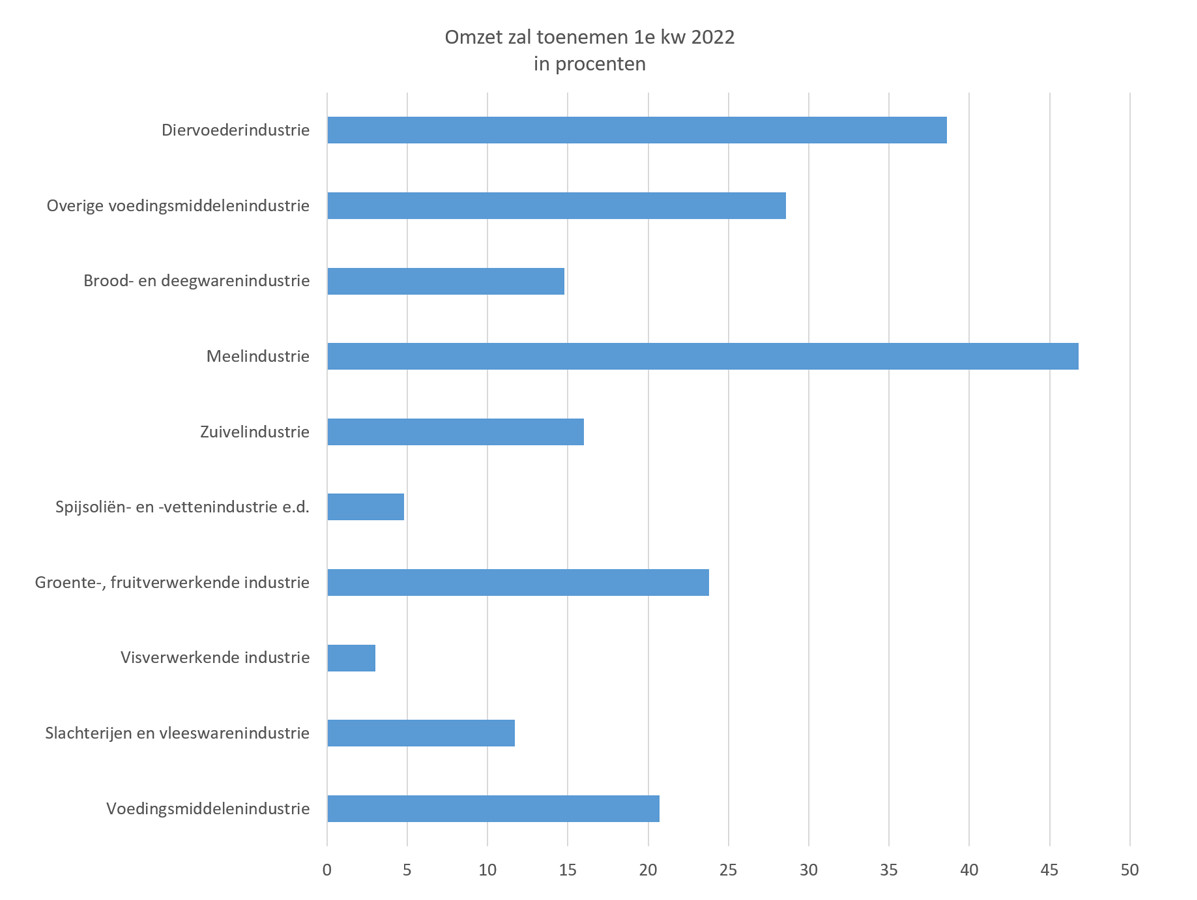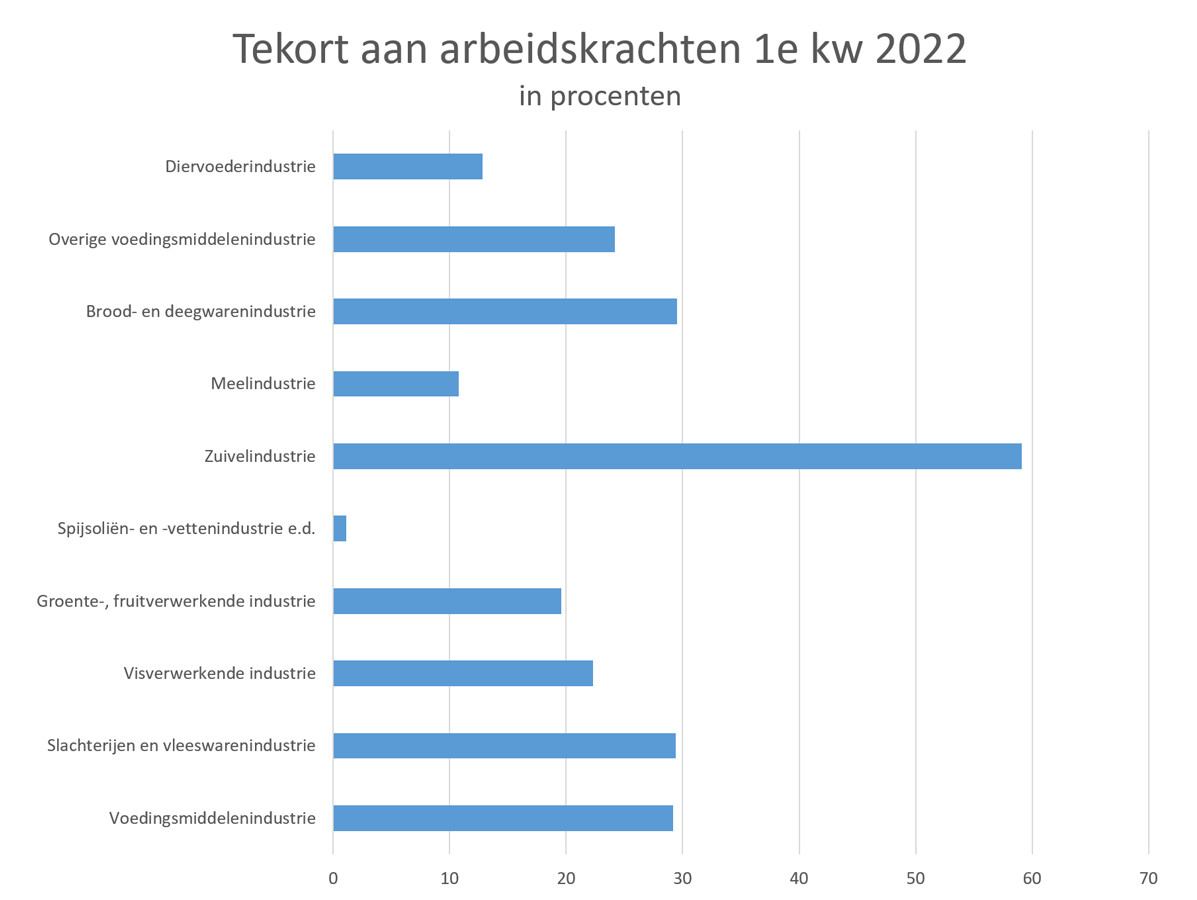
first quarter of this year. This is clearly less than the more than 32 percent who expected sales growth in the fourth quarter at the end of last year. The number of entrepreneurs who expect further price increases rose to record levels, while the number of entrepreneurs who feel hampered by a shortage of labour also increased. This is evident from an analysis of recent CBS economic data by our editors.
The number of food manufacturers expecting turnover to rise in the first quarter is highest in the flour industry (46.8 percent). In second place is the animal feed industry, where 38.6 percent expect a positive turnover development, while nearly a quarter of entrepreneurs in the fruit and vegetable processing industry also expect a turnover increase. In the fish-processing industry, on the other hand, only 3 percent expect turnover to increase in the current quarter, while 12.4 percent expect a fall in turnover and 84.6 percent a stable turnover. The number of turnover pessimists is highest in the bread and pasta industry and in the slaughterhouse and meat products industry, where a quarter of companies expect a drop in turnover in the first quarter.
A record 70 percent of food industry entrepreneurs expect their selling prices to rise further in the first quarter. Only 1 percent expect prices to fall. The bread and pasta industry has the most entrepreneurs expecting a price increase (79.6 percent). The flour industry (78.9 percent) and the dairy industry (76 percent) also anticipate higher sales prices. The edible oils and fats industry is the only sector where a minority of entrepreneurs expect rising prices (45.4 percent).

Nearly 30 percent of food manufacturers thought staff shortages were the biggest obstacle to their production in the first quarter. In the food oils and fats industry, this shortage is hardly an issue (1.1 percent of entrepreneurs), but it is even more of an issue in the dairy industry: nearly 60 percent of entrepreneurs see it as endangering production. There are hardly any financial constraints in the food industry, with only 0.8 percent of entrepreneurs citing this as an obstacle. In six of the nine sectors distinguished by CBS, financial constraints do not play a role at all (0.0 percent). Financial constraints are relatively the highest in the fish-processing industry (4.3 percent).
Source: Vakblad Voedingsindustrie